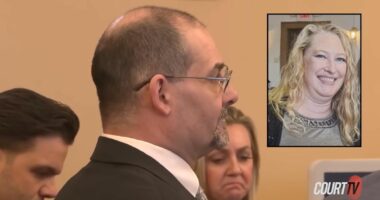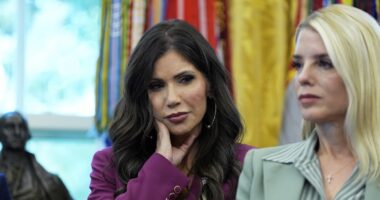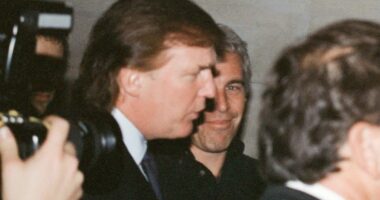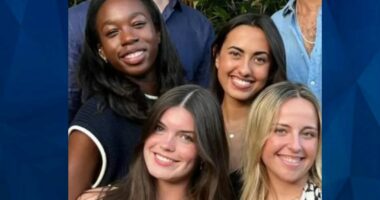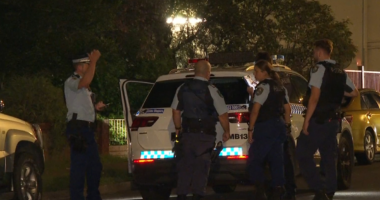Share this @internewscast.com
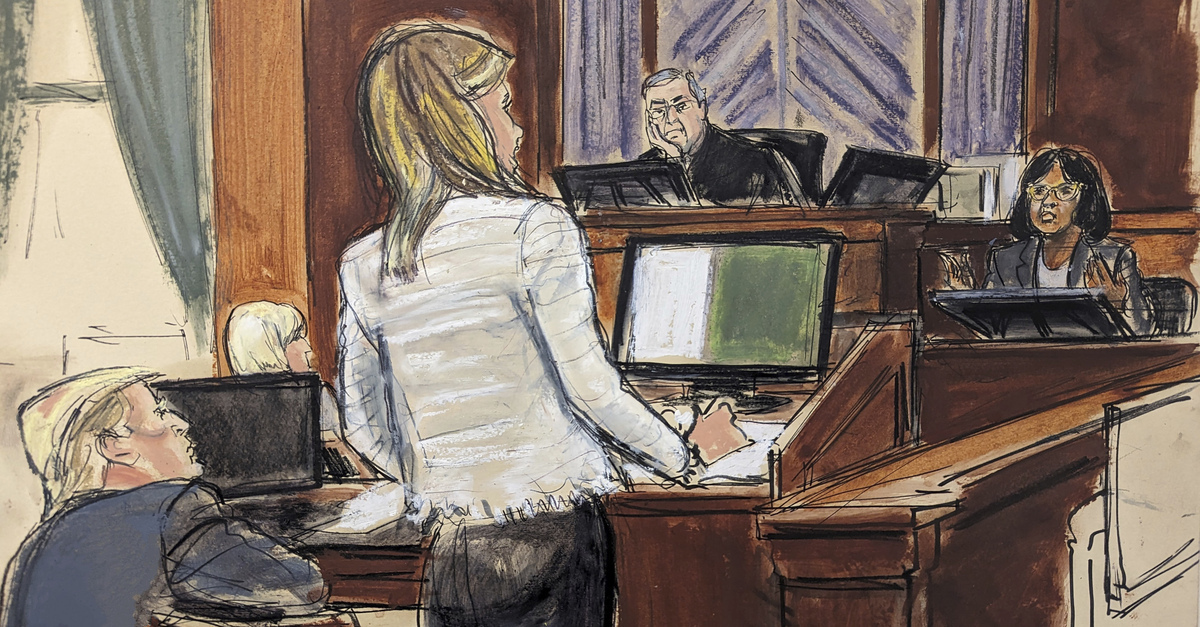
In this courtroom sketch, Thursday, Jan. 25, 2024, Donald Trump, lower left, watches his attorney Alina Habba, standing center, question witness Carol Martin, far right, in federal court in New York. Judge Lewis Kaplan is on the bench, and E. Jean Carroll is seated, background left. (Elizabeth Williams via AP)
Donald Trump is grasping for reasons to appeal the $83.3 million award he has been ordered to pay writer E. Jean Carroll. Through his attorney Alina Habba, the latest attempt arrives through a letter that includes a thin allegation of “incestuous” conflicts of interest between the judge and Carroll’s attorney.
It started with a story in the New York Post published Saturday where an anonymous source alleged that a partner at a prominent law firm, Paul, Weiss, Rifkin, Wharton & Garrison, described the judge presiding over the Carroll defamation trial, U.S. District Judge Lewis Kaplan, as having an inappropriately close relationship with Roberta Kaplan, Carroll’s lawyer.
There is no relation between the judge and the attorney.
“Lew was like her mentor,” the source told the Post. This information, according to Habba’s letter to Kaplan, could be grounds for recusal or a new trial because it was never previously revealed.
“It was never disclosed. It’s insane and so incestuous,” Habba told the Post.
The judge and lawyer did work together at Paul, Weiss, Rifkin, Wharton & Garrison 30 years ago for just under two years and it was briefly before Lewis Kaplan was appointed to become a judge, according to Reuters.
There is no evidence of impropriety provided in Habba’s letter and noticeably, the letter is devoid of a key element central to typical requests for recusal.
Though Lewis Kaplan and Roberta Kaplan may have had a mentor-mentee relationship three decades ago, even if they did, a conflict of interest would largely hinge on whether their workload overlapped with their relationship. Neither Roberta Kaplan nor Lewis Kaplan were working on the E. Jean Carroll defamation suit or allegations underpinning it related to the writer’s abuse at Trump’s hands in the 1990s.
“While not every mere friendship between a judge and lawyer warrants a possible recusal by a judge, as the Fifth Circuit recently explained, recusal and disqualification issues based on possible bias or prejudice require a ‘highly fact-intensive inquiry,’” Habba wrote.
She continued: “Here, without knowing more information or having a specific factual denial by your honor that you had a mentor-mentee relationship with Ms. Kaplan, we are unable to flesh out our position concerning what specific relief should be requested, including but not limited to, motions for new trials on the issues of liability and damages.”
Trump is not alone in his attempts to reverse or mitigate orders from a judge to fork over millions. Rudy Giuliani, a Trump ally and fellow co-defendant indicted in Georgia for alleged efforts to overturn election results, recently declared bankruptcy after he was ordered to pay two election workers he defamed $148 million. Giuliani claims he has a “net income” of roughly $2,300 monthly.
Roberta Kaplan responded to the accusations in a letter to the court Tuesday. Dismissing them as false, she zeroed in on the sourcing of the New York post story and where they “supposedly got this information in the first place.”
“In that regard, it is telling that the article in the New York post only appeared after Ms. Habba’s own statement to the media last weekend where she claimed that only after trial concluded did she learn that Your Honor and I both previously worked at Paul, Weiss, referring to a “conflict of interest” that is ‘insane and so incestuous.’ And while both the New York Post and Ms. Habba purport to cite the recollections of an ‘unnamed partner at Paul, Weiss’, that partner, if he even exists, clearly has a very flawed memory about events that occurred three decades ago.”
Carroll’s lawyer continued:
But that, of course, is not the point. From the very start of the recently concluded trial, Donald Trump and Ms. Habba have pushed a false narrative of judicial bias so that they could characterize any jury verdict against Trump as the product of a corrupt system. While that strategy has now moved into its post-verdict phase, it is now time for Defendant’s false and vexatious claims of bias or impropriety to stop.
